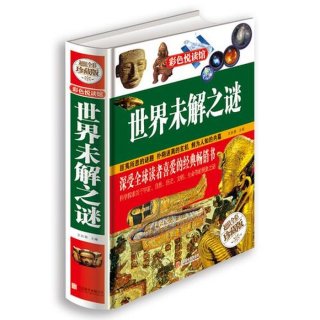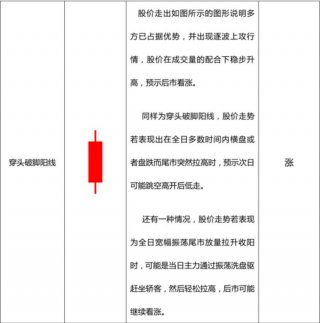50个有趣的问题英语,有意思 英语
-
50个,有趣,的,问题,英语,有意思,Introductio

- 知识-自由百科知识生网
- 2024-01-13 22:40
- 自由百科知识网
50个有趣的问题英语,有意思 英语 ,对于想学习百科知识的朋友们来说,50个有趣的问题英语,有意思 英语是一个非常想了解的问题,下面小编就带领大家看看这个问题。
Introduction:
英语是全球通用的语言之一,学习英语不仅可以帮助我们更好地与世界沟通,还能够开拓我们的思维和视野。在学习英语的过程中,我们常常会遇到一些有趣的问题,这些问题既能够引起我们的兴趣,又能够帮助我们更好地理解和掌握英语。本文将介绍50个有趣的问题英语,希望能够引起读者的兴趣,并提供一些背景信息。
1. Why do we say "bless you" when someone sneezes?
When someone sneezes, it is a common courtesy to say "bless you" or "gesundheit." This tradition dates back to ancient times when people believed that sneezing expelled evil spirits from the body. Saying "bless you" was a way to ward off these spirits and protect the sneezer.
2. Why do we have different accents in English?
Accents in English can vary greatly depending on geographical location. This is due to historical and cultural factors. When different groups of people migrated to different regions, they brought their own unique pronunciations and speech patterns. Over time, these variations developed into distinct accents.
3. Why do we use the phrase "break a leg" to wish someone good luck?
The phrase "break a leg" is commonly used in the performing arts to wish someone good luck before a performance. It is believed to have originated from the superstition that wishing someone good luck directly would bring them bad luck. Instead, saying the opposite, like "break a leg," was believed to bring good luck.
4. Why do we say "it's raining cats and dogs" when it's raining heavily?

The origin of this phrase is unclear, but there are a few theories. One theory suggests that the phrase comes from the Old English word "catadupe," which means a waterfall. Another theory suggests that the phrase originated from the idea that heavy rain could wash dead animals out of the thatched roofs of houses, making it seem like it was raining cats and dogs.
5. Why do we say "the ball is in your court" to mean it's someone's turn to take action?
This phrase comes from the game of tennis. When the ball is hit to one player, it is their turn to hit it back. In a figurative sense, saying "the ball is in your court" means that it is someone's turn to take action or make a decision.
6. Why do we say "mind your own beeswax" to tell someone to mind their own business?
The phrase "mind your own beeswax" is a euphemism for "mind your own business." It originated in the 1920s and was a way to politely tell someone to stop interfering in other people's affairs. The use of "beeswax" instead of "business" was a playful and less confrontational way to convey the same message.
7. Why do we say "the early bird catches the worm" to encourage people to wake up early?
This phrase is a proverb that emphasizes the importance of being proactive and taking advantage of opportunities. It suggests that those who wake up early and start their day ahead of others have a better chance of achieving success.
8. Why do we say "the proof is in the pudding" to mean that the true value or quality of something can only be determined by trying it?
This phrase is a shortened version of the original saying, which was "the proof of the pudding is in the eating." It means that the true value or quality of something can only be determined by experiencing or trying it firsthand.
9. Why do we say "let the cat out of the bag" to mean revealing a secret?
This phrase originated from the practice of dishonest market sellers who would substitute a cat for a piglet and sell it in a bag. If someone accidentally revealed the secret by letting the cat out of the bag, the deception would be exposed.
10. Why do we say "to steal someone's thunder" to mean taking credit for someone else's idea or achievement?
This phrase comes from a play called "The Conscious Lovers" by Irish playwright Richard Steele. In the play, a character invents a machine that produces the sound of thunder. However, another character steals the idea and uses it to gain fame and recognition.
11. Why do we say "a piece of cake" to mean something is easy?
The phrase "a piece of cake" originated from the saying "as easy as eating a piece of cake." Eating a piece of cake is considered an easy and enjoyable task, so it became a metaphor for something that is effortless or simple to accomplish.
12. Why do we say "skeletons in the closet" to mean someone has hidden secrets or embarrassing truths?
This phrase comes from the idea of hiding something shameful or embarrassing in a closet, just like hiding a skeleton. It suggests that someone has hidden secrets or past mistakes that they do not want others to discover.
13. Why do we say "the whole nine yards" to mean giving something your all or going all out?
The origin of this phrase is uncertain, but there are several theories. One theory suggests that it comes from the length of fabric needed to make a complete suit, which is nine yards. Another theory suggests that it comes from the length of ammunition belts used in World War II aircraft, which were also nine yards long.
14. Why do we say "putting lipstick on a pig" to mean trying to make something unattractive appear better than it is?
This phrase is a metaphor that suggests that no matter how much you try to improve or disguise something, its true nature or flaws will still be evident. It implies that attempting to make something unattractive appear better is futile.
15. Why do we say "the elephant in the room" to mean an obvious problem or issue that everyone is aware of but no one wants to address?
This phrase is a metaphor for a large and obvious problem or issue that is difficult to ignore. It suggests that despite its presence, people choose to ignore or avoid discussing it, just like an elephant in a room would be hard to ignore.
16. Why do we say "raining cats and dogs" instead of "raining heavily"?
This phrase is an example of idiomatic language, where the meaning of the words cannot be understood from their literal interpretation. It is believed to have originated from the idea that heavy rain could wash dead animals out of the thatched roofs of houses, making it seem like it was raining cats and dogs.
17. Why do we say "once in a blue moon" to mean something that happens very rarely?
A blue moon refers to the second full moon in a calendar month, which occurs infrequently. The phrase "once in a blue moon" is used to describe something that happens very rarely or on rare occasions.
18. Why do we say "kick the bucket" to mean to die?
The origin of this phrase is uncertain, but there are a few theories. One theory suggests that it comes from the idea of someone standing on a bucket and then kicking it away to commit suicide. Another theory suggests that it comes from the old English word "bucca," which means a wooden beam used for hanging animals.
19. Why do we say "the bee's knees" to mean something or someone is excellent or outstanding?
This phrase originated in the 1920s and was part of the slang used by the flapper culture. It is believed to have been a playful way to describe something or someone as being exceptional or top-notch.
20. Why do we say "let the cat out of the bag" to mean revealing a secret?
This phrase originated from the practice of dishonest market sellers who would substitute a cat for a piglet and sell it in a bag. If someone accidentally revealed the secret by letting the cat out of the bag, the deception would be exposed.
Conclusion:
英语是一门充满趣味和挑战的语言,其中包含着许多有趣的问题和独特的表达方式。通过了解这些问题的背景和起源,我们可以更好地理解和掌握英语,同时也能够增加我们的语言文化知识。希望本文介绍的50个有趣的问题英语能够引起读者的兴趣,并且为他们的英语学习之旅提供一些启发和乐趣。
以上是关于50个有趣的问题英语,有意思 英语的介绍,希望对想学习百科知识的朋友们有所帮助。
本文标题:50个有趣的问题英语,有意思 英语;本文链接:http://yszs.weipeng.cc/zs/522811.html。
猜你喜欢
- 高中生必会的名著文学常识;七上文学常识 2024-01-12
- 飘过的知识 - 动态视力与静态视力 2024-01-12
- 霸王龙的生活常识;中国十大恐龙 2024-01-12
- 防止校园欺凌的小常识简短、防校园欺凌知识内容 2024-01-12
- 适合小孩子的航天小知识;航天科普小知识 2024-01-12
- 踏入社会一定要知道的事情 - 走出社会如何锻炼自己 2024-01-11
- 谈谈你对知识经济的理解、谈谈你对管理的理解 2024-01-11
- 讲一个冷知识,一些很实用的冷知识 2024-01-11
- 蚊子的冷知识搞笑 关于蚊子的幽默笑话 2024-01-11
- 茶桌礼仪常识大全;茶桌的规矩和礼仪 2024-01-11
























